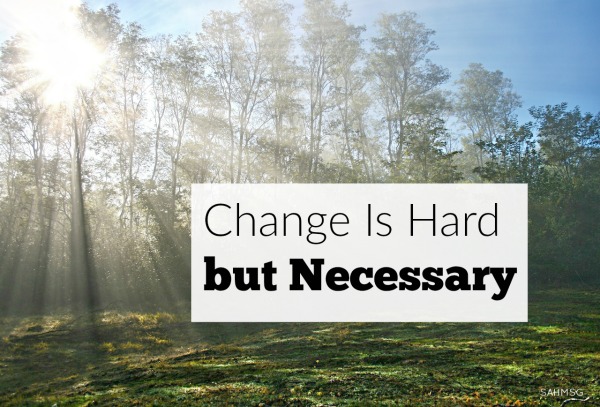Consider a working mother who gets up early. Her day starts off in a blur as she gets ready for work, packs lunches, feeds the kids, makes sure everyone is set for the day, and prepares breakfast. She can feel the mental strain as soon as she enters her work mode. The mountain of laundry, the dinner that needs to be prepared, and the homework her children have to complete all loom over her already hectic and packed day.
Consider now another woman; she may not have children, but the weight of the imbalance is still there. She is struggling to keep her personal life separate from her job life, which goes much beyond the conventional nine to five schedule. She feels overburdened by trying to progress in her work, juggling a social life, staying in shape, and getting enough sleep. For her, work-life balance is less of a realistic objective and more of an impossible dream.
This is a daily reality for countless women across the world. The lack of time is a profound issue, particularly for women juggling professional and domestic roles. Studies reveal that women in developed countries spend double the amount of time on unpaid work like cooking, cleaning, and child care compared to their male counterparts. This time disparity skyrockets to 3.4 times in developing countries.
In many instances, this discrepancy stems from entrenched societal beliefs and gender expectations dictating women’s roles. However, at times, the inequality is more subtly woven into our daily routines. Much of a woman’s time is devoured by the so-called ‘hidden load’ — tasks like planning meals, arranging kids’ playdates, or simply bearing the emotional labor, which often fly under the radar of economic indicators.
This time poverty, spurred on by both visible and hidden responsibilities, can push women, especially caregivers, towards either exiting the workforce or gravitating towards lower-paid jobs.

So, the critical question that surfaces is: How can women achieve work-life balance today?
We delve further into this subject and provide workable solutions in this essay. Our aim is to navigate the murky waters of work-life balance, helping women from all walks of life discover their own equilibrium. It’s not just about surviving the day; it’s about thriving in every aspect of life.
Why Is Work Life Balance Important for Women?
As we venture further into the intricacies of work-life balance, we unearth the critical question: why is this equilibrium so essential for women?
1. Healthier Body and Mind
The first and perhaps most vital reason is the well-being of our body and mind. A skewed balance between our professional and personal lives can significantly strain our health, with research backing this assertion.
For instance, a study revealed that European working adults experiencing work-life conflict often reported poor health. Similarly, another research in Poland pointed to a lower work-life balance leading to worse mental and physical health among the middle class.
The constant grind can also spark stress and burnout, potentially paving the way for mental disorders like anxiety and depression. In essence, maintaining a healthy balance is pivotal to safeguarding our overall health.

2. More Present and Engaged
Here, we’re talking about engagement – in work and in life. We have only so much energy – physical and mental – to go around. When we’re constantly stretched thin, our ability to be wholly present and engaged in our roles — as an employee, parent, or partner — diminishes.
Achieving balance ensures we’re giving our best to all facets of our life, not favoring one over the other.
3. A More Fulfilling Life
True fulfillment is achieved when we can maintain a satisfying balance between work and life. Today’s woman is far more than just a worker or a caregiver — she’s both and often, even more. Women today are making significant strides in their careers, raising families, and finding time for activities that bring them joy.
Yet, as we reach for the stars, we must remember that without managing our time and energy wisely, we risk feeling more dissatisfied as we spread ourselves too thin.
Because let’s face it — life is too short to not live with joy. In a world where women are achieving more than ever before, finding that elusive work-life balance becomes crucial.
How to Regain Your Work Life Balance
Now that we’ve established why maintaining work-life balance is essential, let’s explore some strategies to regain control and restore balance in your life.

1. Say ‘No’ More Often
There’s no need to feel guilty for saying no to demands that stretch you too thin.
Often, women find themselves overcommitting because of the dual pressures of their roles as caregivers and professionals. However, it’s crucial to recognize when your plate is too full, and taking on more could leave you overwhelmed and affect your performance.
Clear communication about your boundaries, especially regarding overwork, is vital. For instance, when assigned a new project while already juggling several tasks, you might say, “I appreciate your confidence in my work, but I currently have several projects that require my full attention. I wouldn’t be able to give this the focus it deserves.”
2. Schedule Regular Breaks
The fast-paced modern life often leads us to deprioritize self-care dismissing it as a luxury.
However, setting aside time for oneself is not merely a treat—it’s a necessity. It allows you to decompress, recharge, and gain a fresh perspective. Maybe it’s a weekly yoga class, reading for pleasure in the evening, or a peaceful morning walk before the day’s rush begins. These are moments when you can listen to yourself, attend to your needs, and cultivate personal growth.
Regular breaks can also improve your overall productivity and cognitive function. They serve as stress-release valves, providing temporary reprieve from continuous work and helping to keep burnout at bay.

3. Seek Flexibility at Work
Many traditional work environments adhere strictly to the 9-5 routine, but the realities of life, especially for women, often require a more flexible approach.
Don’t hesitate to have a candid conversation with your employer or manager about your needs. If you’re a parent, there may be times when you need to be home with your children, or you might benefit from an occasional day working from home to focus without office distractions.
Flexible work hours can also be beneficial, allowing you to work during your most productive times or accommodate school runs and other personal commitments.
In many cases, employers are willing to offer these options, understanding that a happier, less stressed employee is also a more productive one.
4. Don’t Shy Away from Asking for Help
Society often pressures women into believing they should be able to ‘do it all,’ but this is neither realistic nor healthy.
Whether it’s enlisting your partner to share household chores or talking to your manager about delegating tasks when your workload is too high, it’s okay to ask for assistance. This doesn’t mean you’re failing. It means you’re human.
Moreover, you can turn household chores into valuable life lessons for your kids. For example, teaching them to do their laundry not only reduces your workload but also equips them with a necessary life skill, fostering independence and responsibility.

5. Connect with Other Women
As the saying goes, “no man (or woman) is an island.” We humans are innately social creatures and thrive on connection.
Joining clubs, online communities, or local groups that provide a space for women to connect can offer a profound sense of shared understanding and solidarity. These platforms enable women to share experiences, discuss common challenges, and learn from one another.
They can also serve as valuable resources for advice, or merely offer a safe space to vent without judgment.
These connections can be a source of comfort, motivation, and even inspiration. They remind us that we’re not alone in our struggles and that it’s okay to lean on each other.

Remember, work-life balance doesn’t mean distributing your time and energy perfectly between work and personal life. It’s not a one-size-fits-all solution. The balance that works for you may differ from what works for others, and that’s perfectly okay. It may require some trial and error, but finding the right balance for your unique situation is integral to leading a more fulfilling life.
Work and life are not adversaries; thriving in one doesn’t necessitate sacrificing the other.
There is no all-inclusive approach to work-life balance because we are all individuals with our own burdens, pleasures, difficulties, and victories.
Although finding a balance between your personal and professional lives can seem difficult, using the aforementioned tips can get you one step closer to living a happy and meaningful life.
Remember, it’s not a sprint, but a marathon. One step at a time. Keep moving forward, no matter the pace.





Hello, Neat post. There’s an issue together with your website in internet explorer, would test this?K IE nonetheless is the marketplace chief and a large component to people will omit your great writing due to this problem.
I have been exploring for a bit for any high-quality articles or blog posts on this kind of area . Exploring in Yahoo I at last stumbled upon this website. Reading this information So i’m happy to convey that I’ve a very good uncanny feeling I discovered just what I needed. I most certainly will make certain to don’t forget this web site and give it a glance regularly.
Good write-up, I am regular visitor of one¦s web site, maintain up the excellent operate, and It’s going to be a regular visitor for a long time.
Perfect piece of work you have done, this web site is really cool with excellent information.
I enjoy your writing style genuinely enjoying this web site.
Some really good info , Glad I noticed this. “It’s not only the most difficult thing to know one’s self, but the most inconvenient.” by Josh Billings.
Hello just wanted to give you a quick heads up and let you know a few of the pictures aren’t loading properly. I’m not sure why but I think its a linking issue. I’ve tried it in two different browsers and both show the same results.
https://myteana.ru/forums/index.php?autocom=gallery&req=si&img=6606
Thank you for your sharing. I am worried that I lack creative ideas. It is your article that makes me full of hope. Thank you. But, I have a question, can you help me?